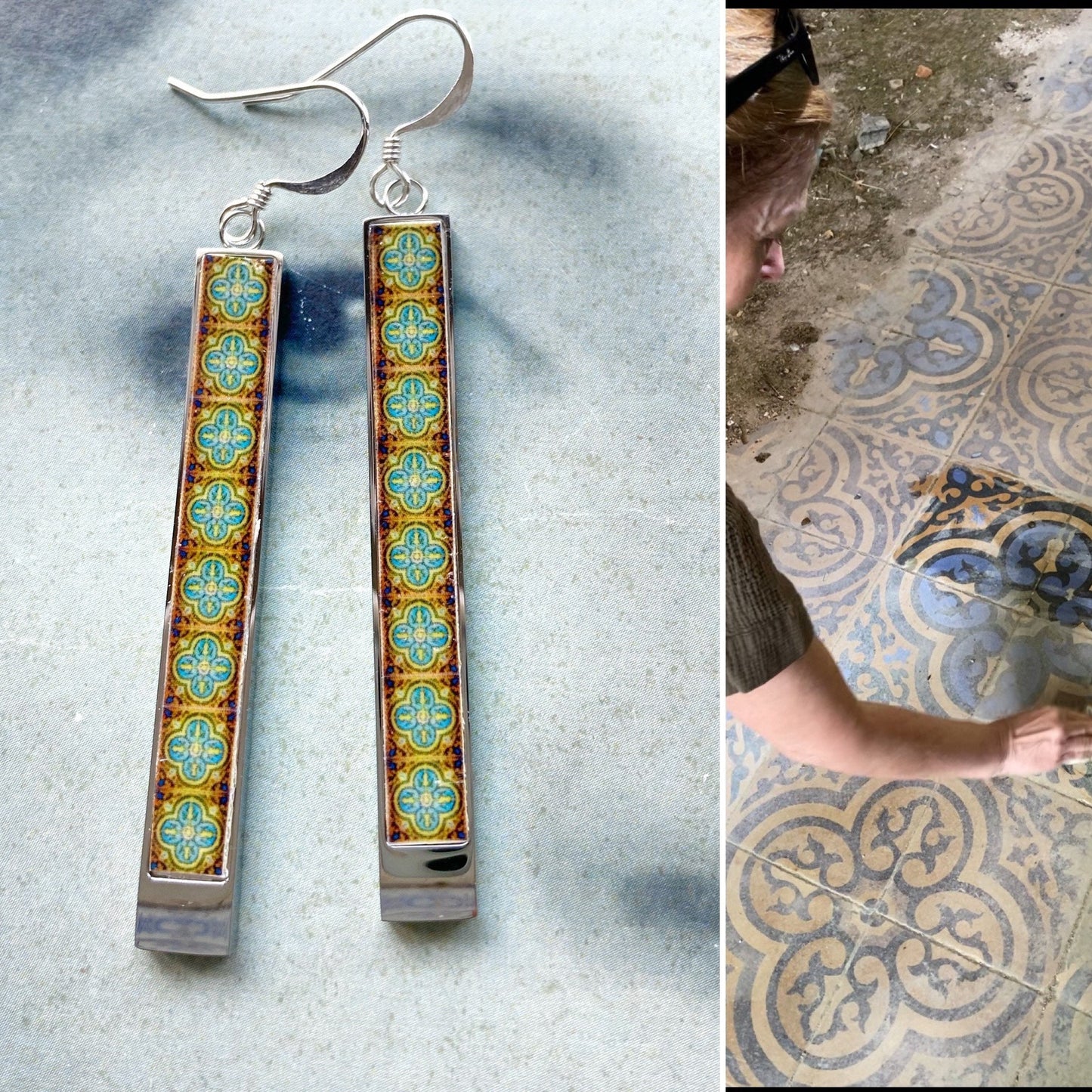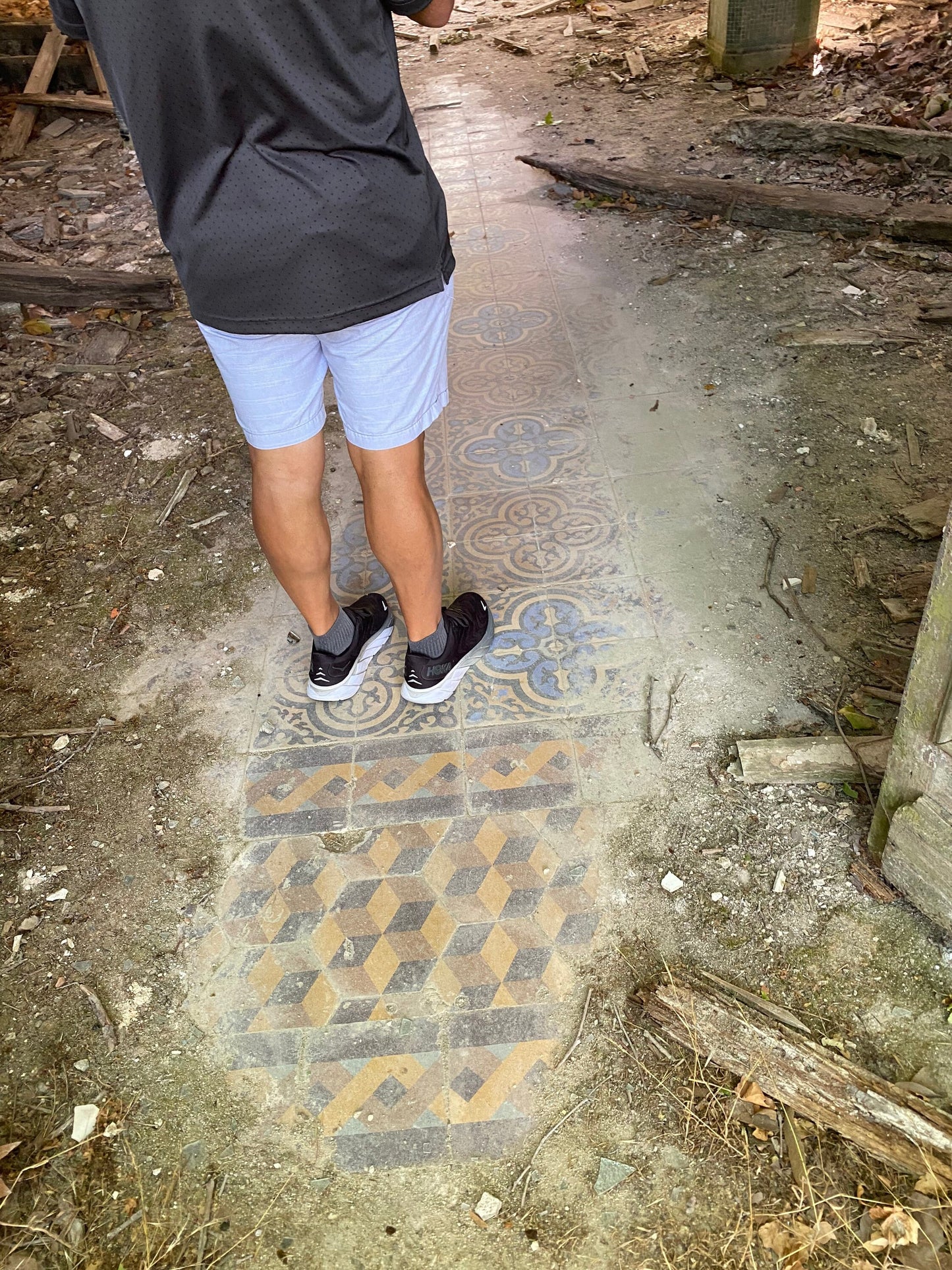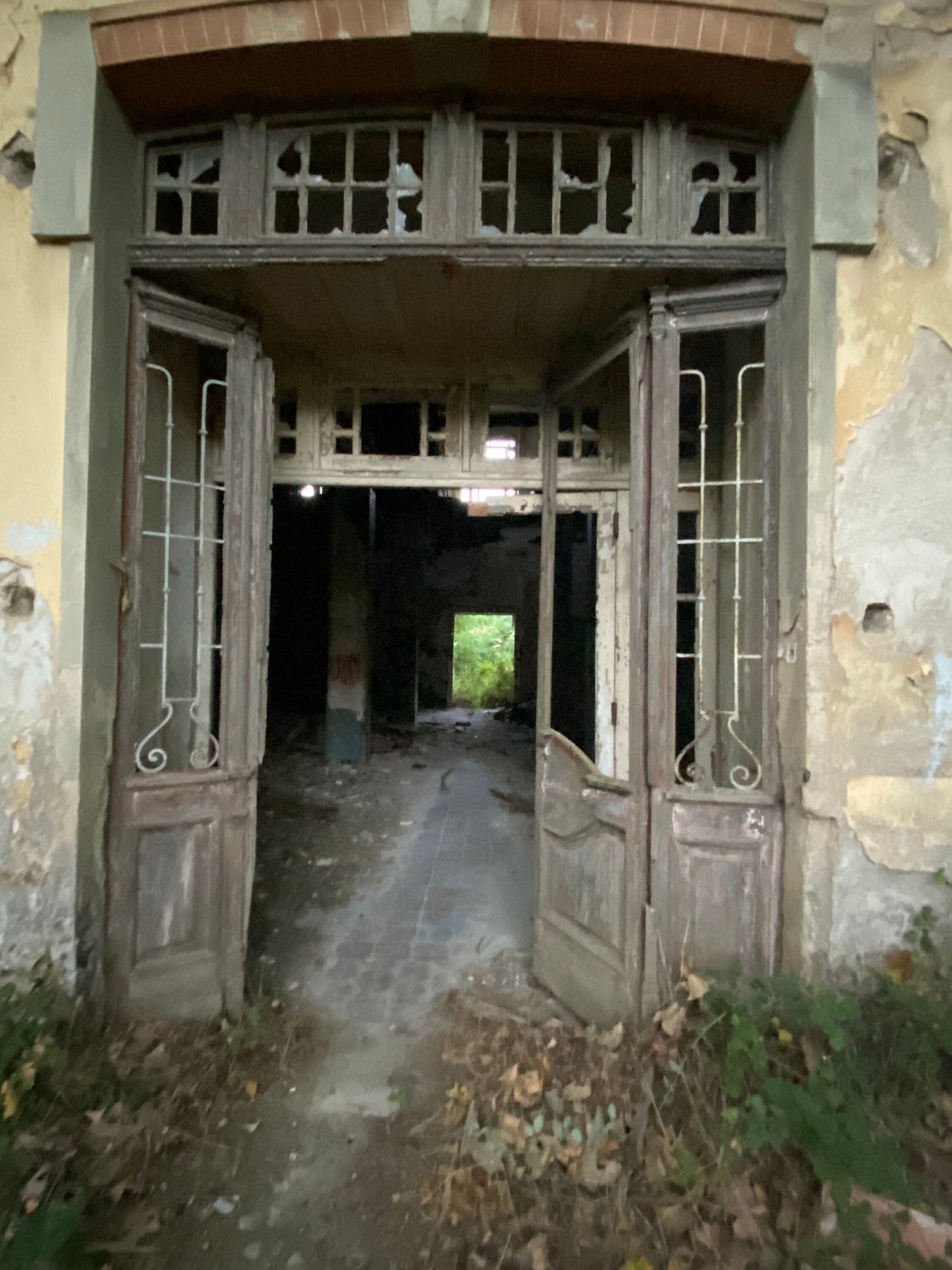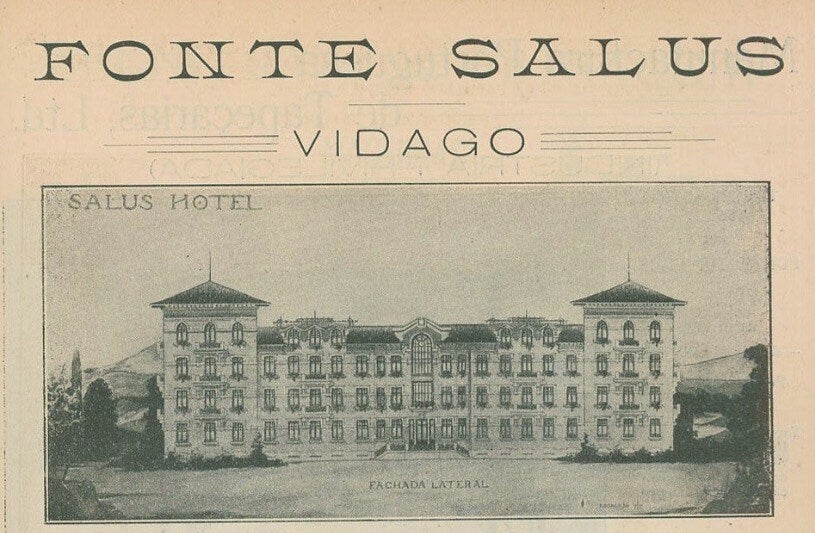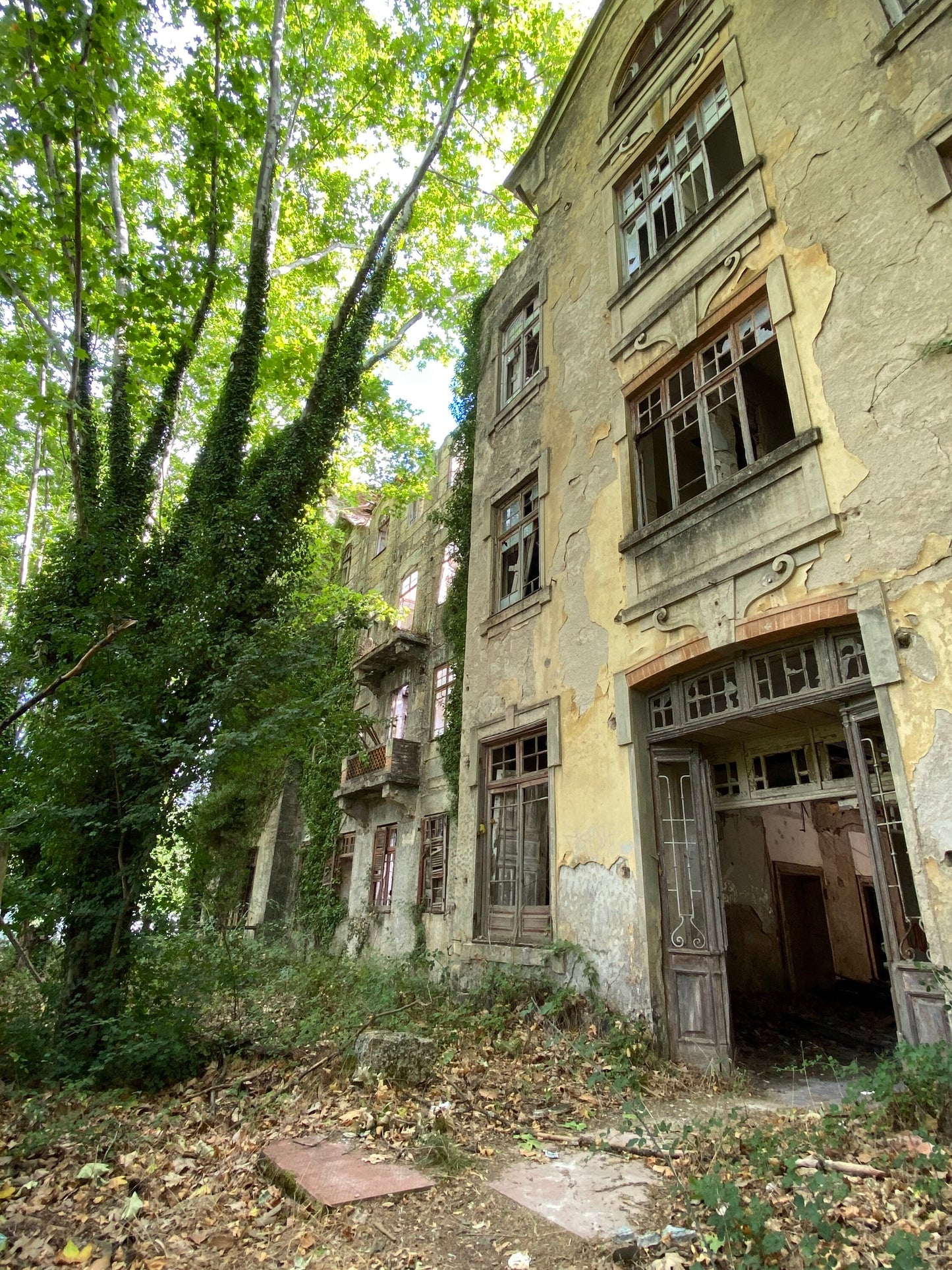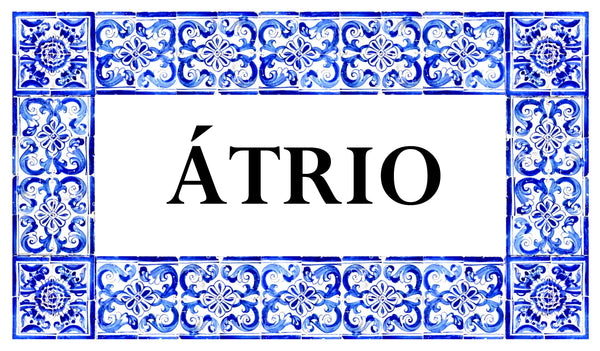Atrio Tiles
Atrio Earrings Matchstick Portugal Vidago Abandoned Hotel Floor Tiles Hotel Salus Hotel do Golfe built in 1918 Stainless Steel - SEE VIDEO
Atrio Earrings Matchstick Portugal Vidago Abandoned Hotel Floor Tiles Hotel Salus Hotel do Golfe built in 1918 Stainless Steel - SEE VIDEO
Couldn't load pickup availability
These beautiful Bar or Matchstick Earrings are reversible and measure 2.5" long. They are solid stainless steel, but very lightweight. Precious pieces of Portuguese history you are certain to receive compliments on! Since they come in a gift box, they make perfect gifts for the women in your life.
Use this link to find all of our Matchstick Earrings https://www.etsy.com/shop/Atrio?section_id=29230696
WEAR A PIECE OF HISTORY!
QUESTION: Are your tiles real antique Portuguese Azulejo tiles?
ANSWER: Absolutely not. In our description of each item, we try to call attention to the theft and destruction of antique Portuguese tiles. Even the tiles found in flea markets and antique stores were most likely stolen off a building during the night. We have seen entire home facades disappear during the night to thieves. Thankfully, Portugal just passed a law declaring this theft a crime. We can only hope that it will one day be enforced.
For this reason, we have no part in this despicable crime. We make our own tiles from polymer clay. Ceramic would be far too heavy for earrings and impossible to mold into the shapes we want. For the hoops, we mold the clay as thin as we can get it, so that it will look pretty inside the hoops.
The earrings are 2.5" long and featherlight - 3gr. each. They have stainless steel pendants and surgical steel ear wire. The silver version has a 925 silver ear wire. They will come in a gift box.
Wear a Piece of History!
In the summer of 2022, we were staying at the Palacio do Vidago in search of antique tiles. While taking a walk down the street in the evening, we came across a huge abandoned hotel, complete with bats flying around our heads. Amazingly, we could see beautiful floor tiles in the entrance. The next day we returned to take photos of the gorgeous tiles. The structure is completely unsafe, so we did not venture inside, except to clean a few floor tiles in the doorway.
Here is what I was able to find out about the hotel. It was built in 1918 and it was originally called the Hotel Salus. Salus is the name of a naturally carbonated spring nearby where people (nobility and the wealthy) would travel to "take the waters".
It boasted 100 rooms, complete with electricity and running water. In 1930 they changed the name to Hotel do Golfe after adding a golf course. In 1967, the hotel had a huge fire and was never restored. It's been sitting in ruin ever since!
Vidago is a small town in the north of Portugal, not far from Spain. In the late 1800's it became a very popular thermal spa and even hosted King Dom Luis 1. Access to the village was very difficult until they re-routed the small and slow train to Vidago in 1910.
The springs (Vidago, Vidago II and Fonte Salus) have differing levels of bicarbonates, sodium and carbon mineral compositions
They were visited by people as important as the King D. Luís I of Portugal and his wife Dona Amelia. Between 1876 and 1889 the water was awarded prizes in Madrid, Paris, Vienna and Rio de Janeiro for its curative properties.
In 1863 João das Fragas and his wife Aurélia Rita de Souza discovered that water on their land had a strange taste and made them burp. A sample was sent to be tested by a doctor in Chaves. In the meantime, Joao died and the town hall of Chaves tried to intimidate Aurelia into selling a very low price. She reminded them that she was now a single mother to two children, but later gave in to their offer for 40$000 Reis in 1865
History of the Vidago Palace Hotel
The hotel was constructed in 1910, and was considered the most luxurious in the Iberian Peninsula at the time. Designed by architect José Ferreira da Costa, it was inaugurated by King D. Manuel II at the time of its opening; his brother and father (King Carlos) had visited Vidago for treatment. It became a center for concerts, tennis, croquet events and on the island in the park there was a skating rink.
The Vidago Palace Hotel was commissioned by King Carlos I, who wanted to build a luxury spa resort that could stand alongside Europe’s finest. At the time, the waters of the town of Vidago were considered an asset of national interest.
Even before the construction of the Palace Hotel, many members of royalty and nobility traveled to Vidago for the waters. Initially, they would stay in the Grande Hotel, built by the Sociedade das Aguas de Vidago. They quickly realized that it a larger and more dignified space was needed for such illustrious guests. This was when they decided to build the Vidago Palace. The budget was 300 contos de Reis (a fortune).
The Palace was inaugurated on October 6, 1910 and it was the first hotel in Portugal to have an elevator. It has 365 windows and initially had 200 rooms, and a total of 700 electric lights. Every room had showers and refrigerators, which was considered very luxurious. Despite the fact that there were almost no cars on the roads in Portugal at the time, the Palace had a huge garage.
The Vidago Palace was the last palace to be built in Portugal. Ironically, the royal family never got to use it. King D Carlos was assassinated on February 1, 1908. His son King D. Manuel II was deposed during the Revolution on October 5, 1910, the day before the inauguration of the Palace!
The term Azulejo or Tile dates back to the time of Arab occupation of the Iberian Peninsula. The term "azulejo is derived from the Arab word (al zulej) which means a smooth and polished stone. It wasn't until the 16th century that the process was perfected into the tile we know today.
Wear a Piece of History!
🌸 Favorite our shop for updates
🌿 Follow us on Instagram @atrio_azulejos
🌿Follow us on Facebook https://www.facebook.com/o.Atrio/
+All items will come in a gift box ready for gift giving.
🌺Please find our large selection of Portuguese FILIGREE at atriotiles.com
🌸🌸🌸🌸🌸🌸🌸🌸🌸🌸🌸🌸🌸🌸🌸🌸🌸🌸
🌸
The term Azulejo or Tile dates back to the time of Arab occupation of the Iberian Peninsula. The term "azulejo is derived from the Arab word (al zulej) which means a smooth and polished stone. It wasn't until the 16th century that the process was perfected into the tile we know today.
🌸🌸🌸🌸🌸🌸
+ Please note that some of our items will come with a tag stating "Return only accepted if tag is attached". There are no exceptions to this policy. 🌺ATTENTION: There is a 5% RESTOCKING fee per item PLUS a $3.50 fee for returned items.
🌸🌸
Although the tiles are water resistant, care should be taken to keep the tiles and metal out of water and away from lotions, including cosmetics, sunscreen, hairspray, etc. The chemicals in these products will dull the finish on the tiles.
🌸🌸🌸
All my tiles are replicas made of polymer clay where the image actually becomes part of the clay through baking. No glue is used in the process. The pieces become waterproof and scratch resistant. Due to the handmade and hand shaped nature of each tile, slight variations will occur, as no two pieces are alike.
🌸🌸🌸🌸
Wear a Piece of History!
Share
